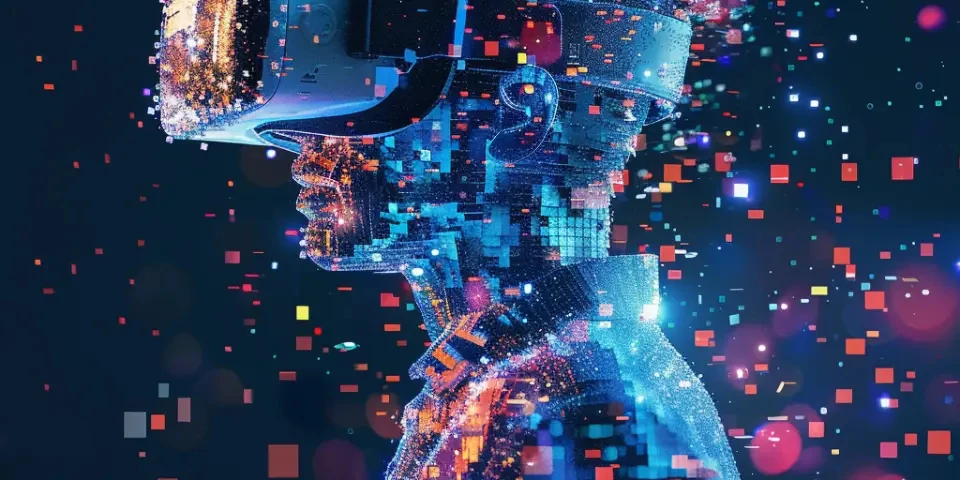Outpace the game How AI is reshaping the job market
Artificial Intelligence (AI) is transforming various aspects of our lives and one significant area where its impact is felt is the job market. With the rapid advancement of AI technologies, it is crucial for individuals to stay ahead of the game and understand how AI is reshaping job industries.
1. Automation and Job Displacement
AI's ability to automate repetitive and mundane tasks is revolutionizing industries. Routine jobs like data entry, assembly line work, and customer support are increasingly being taken over by AI systems. This automation can result in job displacement, prompting workers to adapt and acquire new skills.

However, it is essential to note that while AI may replace certain jobs, it also creates new opportunities in other areas. As tasks that can be automated are eliminated, individuals are encouraged to focus on higher-level decision-making roles that require creativity, problem-solving, and emotional intelligence.
2. Enhanced Efficiency and Productivity
AI can analyze vast amounts of data at incredible speeds, resulting in increased efficiency and productivity. From predictive analytics to natural language processing, AI-driven tools can streamline workflows, optimize processes, and deliver insights that were previously unimaginable.
Businesses are already leveraging AI-powered tools like chatbots for customer service, machine learning algorithms for personalized marketing, and robotic process automation for streamlined operations. Embracing these technologies can help employees work smarter, allowing them to focus on complex tasks that require human intervention.
3. Augmented Decision Making
AI's algorithms and predictive models can assist decision-making processes by analyzing vast amounts of data, identifying patterns, and providing insights. From finance to healthcare, professionals can leverage AI-powered tools to make more informed decisions.
For instance, doctors can use AI-based diagnostic systems to improve accuracy in disease detection, leading to better treatment plans. Financial analysts can utilize AI algorithms to analyze market trends and make data-driven investment decisions. These tools empower individuals to make better choices based on empirical evidence.
4. Skill Adaptation and Training
As AI becomes more prevalent, individuals must adapt their skill sets to remain relevant in the job market. Soft skills, such as critical thinking, creativity, emotional intelligence, and adaptability, are becoming increasingly valuable.
Companies and educational institutions must provide training programs that equip individuals with the necessary skills to work alongside AI systems. Upskilling and reskilling initiatives are key to ensuring individuals are equipped to thrive in an AI-driven workplace.
5. Ethical Considerations
As AI systems become more autonomous, ethical considerations become essential. Issues such as biased algorithms, data privacy, and AI decision-making transparency need to be addressed to ensure fair and responsible use of AI technologies.
Companies should implement ethical guidelines and frameworks to govern AI use and promote transparency. Industry collaborations, research, and regulations play a crucial role in shaping a fair and ethical AI-driven job market.
6. New Job Opportunities
While AI can automate certain roles, it also creates new job opportunities that were previously nonexistent. AI experts, data scientists, and AI system trainers are in high demand as companies seek professionals who can develop, implement, and maintain AI-driven systems.
Moreover, AI technologies are driving the need for specialized roles such as AI ethicists, AI translators, and AI trainers who ensure the responsible use and development of AI systems.
7. Job Market Evolution
The job market is evolving, and the skills required today may not be the skills in demand tomorrow. Professionals need to embrace lifelong learning to keep up with AI-driven advancements and remain employable.
Continuous learning platforms, online courses, and certifications play a crucial role in upskilling and reskilling individuals. Lifelong learning becomes a means to adapt to the changing demands of the job market and seize new opportunities that AI brings.
8. Addressing the Fear of Job Loss
Many individuals fear that AI will lead to mass job loss. However, history has shown that technology disrupts job industries but also creates new employment opportunities.
It is crucial to educate individuals about the potential benefits of AI, including increased productivity, enhanced decision-making, and the creation of new roles. Encouraging individuals to view AI as a tool that complements their skills rather than a threat can alleviate job market anxieties.
Frequently Asked Questions
1. Will AI completely replace human jobs?
No, while AI may replace certain jobs, it also creates new opportunities. Humans will continue to play a critical role in areas that require creativity, problem-solving, and emotional intelligence.
2. How can individuals prepare for an AI-driven job market?
Individuals should focus on developing soft skills, staying updated with AI advancements, and embracing lifelong learning opportunities.
3. What are the ethical considerations associated with AI in the job market?
Ethical considerations include addressing bias in algorithms, ensuring data privacy, and promoting transparency in AI decision-making processes.
References:
1. World Economic Forum. (2018). The Future of Jobs Report 2018. Retrieved from https://www.weforum.org/reports/the-future-of-jobs-report-2018
2. Deloitte. (2018). The AI advantage: How to put artificial intelligence into practice in your business. Retrieved from https://www2.deloitte.com/content/dam/Deloitte/us/Documents/consulting/us-consulting-ai-executive-survey-0918.pdf
3. Harvard Business Review. (2017). Reskilling the workforce. Retrieved from https://hbr.org/2017/06/reskilling-the-workforce
Explore your companion in WeMate